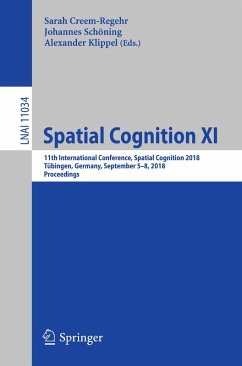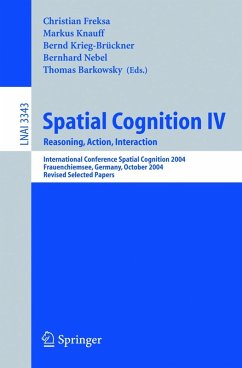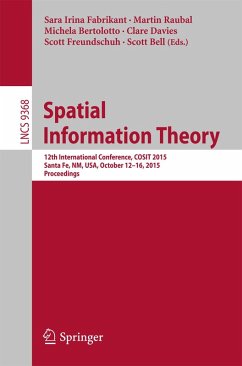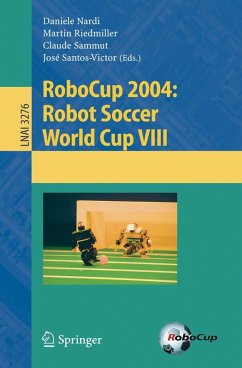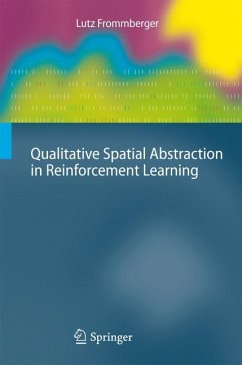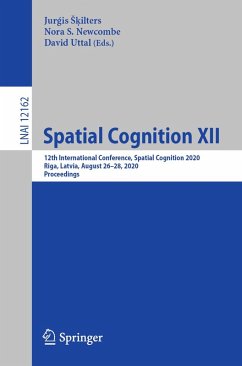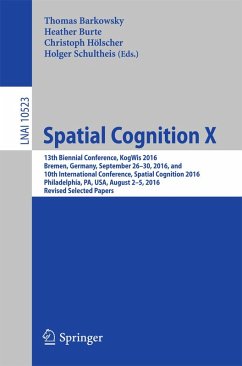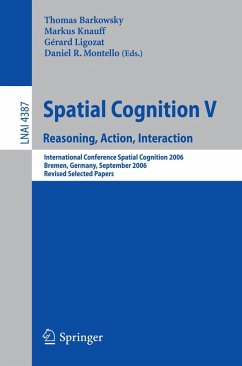
Qualitative Spatial Reasoning with Topological Information (eBook, PDF)
Versandkostenfrei!
Sofort per Download lieferbar
40,95 €
inkl. MwSt.
Weitere Ausgaben:

PAYBACK Punkte
20 °P sammeln!
Spatial knowledge representation and reasoning with spatial knowledge are relevant issues for many application areas such as robotics, geographical information systems, and computer vision. Exceeding purely quantitative approaches, more recently initiated qualitative approaches allow for dealing with spatial information on a more abstract level that is closer to the way humans think and speak. Starting out with the qualitative, topological constraint calculus RCC8 proposed by Randell, Cui, and Cohn, this work presents answers to a variety of open questions regarding RCC8. The open issues conce...
Spatial knowledge representation and reasoning with spatial knowledge are relevant issues for many application areas such as robotics, geographical information systems, and computer vision. Exceeding purely quantitative approaches, more recently initiated qualitative approaches allow for dealing with spatial information on a more abstract level that is closer to the way humans think and speak. Starting out with the qualitative, topological constraint calculus RCC8 proposed by Randell, Cui, and Cohn, this work presents answers to a variety of open questions regarding RCC8. The open issues concerning computational properties are solved by exploiting a broad variety of results and methods from logic and theoretical computer science. Questions concerning practical performance are addressed by large-scale empirical computational experiments. The most impressive result is probably the complete classification of computational properties for all fragments of RCC8.
Dieser Download kann aus rechtlichen Gründen nur mit Rechnungsadresse in A, B, BG, CY, CZ, D, DK, EW, E, FIN, F, GR, HR, H, IRL, I, LT, L, LR, M, NL, PL, P, R, S, SLO, SK ausgeliefert werden.




